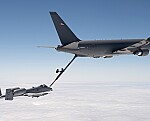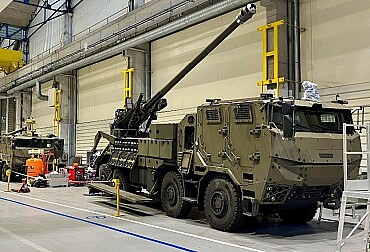What could a new Labour Government mean for UK Defense?
With the Labour Party's decisive victory in the July 4 UK general elections, questions abound regarding the potential shifts in the nation's defense policies. After a 14-year hiatus, Labour returns to power with a substantial majority, promising to address national security with a blend of continuity and change. Here’s an in-depth look at Labour's defense strategies and what they might mean for the UK's military future.

Continued support for Ukraine
Under previous Conservative leadership, supporting Ukraine has been a cornerstone of the UK's international policy, particularly under former Prime Minister Rishi Sunak. Labour, led by Keir Starmer, has signaled a strong intention to maintain this support. This continuity is likely to be well-received in Kyiv, as the UK’s backing remains crucial in the ongoing conflict with Russia.
Defense spending and fiscal responsibility
Labour has pledged to increase defense spending to 2.5% of GDP, contingent upon meeting the party’s fiscal rules. This target mirrors the Conservative Party's aim but lacks a firm timeline, drawing scrutiny from some defense analysts. The challenge will be balancing this increase with existing financial constraints, particularly given the projected £7.9 billion budget overrun for supporting the nuclear deterrent over the next decade.
Commitment to the Continuous at Sea Deterrent (CASD) and NATO
A significant departure from the policies of former Labour leader Jeremy Corbyn, who advocated for nuclear disarmament and the dissolution of NATO, Starmer has firmly committed to the CASD and NATO. The Labour leader has emphasized the importance of the UK’s nuclear deterrent, provided by Vanguard-class submarines armed with Trident 2 D5 warheads, stating it is essential for national security. Additionally, the planned £31 billion acquisition of four new Dreadnought-class submarines to replace the Vanguard fleet by 2030 will proceed under Labour's watch.
Strategic Defense Review
Labour has promised to conduct a comprehensive strategic defense review by July 2025. This review aims to reassess the threats facing the UK, determine the necessary capabilities, and align resources accordingly. It will be a crucial step in reshaping the UK's defense strategy, ensuring it is fit to tackle contemporary security challenges.
Rebuilding European Relations
One of the most notable shifts under a Labour government will be the emphasis on rebuilding relationships with the European Union. The Conservative-led Brexit has strained these ties, particularly in defense cooperation. Labour’s focus on renewing partnerships with European allies could pave the way for new defense trade agreements and increased collaboration in areas such as naval missions and missile defense research.
Challenges in Military Procurement and Workforce
Labour inherits a military procurement system plagued by inefficiencies and overruns, with annual waste estimated between £2.2 billion and £3.2 billion. Addressing these issues will be paramount to optimizing defense spending. Additionally, the UK’s defense industry faces significant workforce challenges. The overlapping demands of building both attack and ballistic missile submarines, as well as commitments under the AUKUS trilateral partnership, require a skilled and sufficient workforce, a factor that Labour must manage carefully.
Prospective Defense Minister: John Healey
John Healey, Labour’s shadow defense minister, is poised to take the helm at the Ministry of Defence (MoD). He has already indicated that a new strategic defense review will be a priority to align the UK’s military capabilities with its strategic needs. Healey has criticized the Conservatives for mismanaged acquisitions and emphasized the need for more efficient procurement processes.
Addressing Army Size and Capabilities
The British Army’s reduction to 73,000 personnel by 2025, the smallest size since the Napoleonic Wars, has been a point of contention. Labour has yet to commit to specific troop numbers but recognizes the necessity to halt the decline in recruitment and retention. The strategic review will likely influence future decisions on army size, with the ongoing Russia-Ukraine conflict potentially impacting these considerations.
Conclusion
A Labour government heralds both continuity and change in UK defense policy. While maintaining a strong stance on nuclear deterrence and support for Ukraine, Labour aims to rebuild European relations and address inefficiencies in military procurement. The upcoming strategic defense review will be critical in shaping the UK’s defense landscape, ensuring it is equipped to face current and future threats. As Labour settles into power, the defense community will closely watch how these pledges translate into concrete actions and policies.








